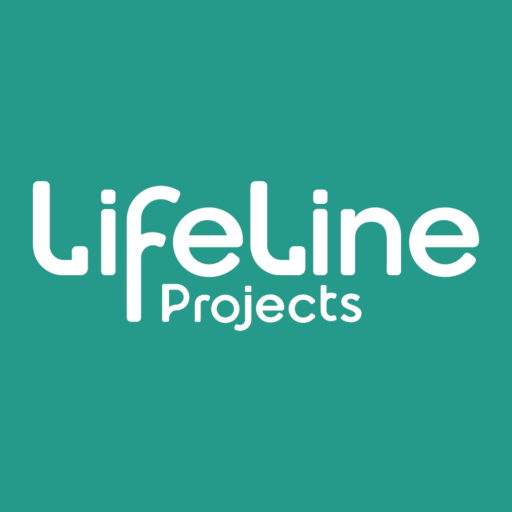This month, we’re talking with Farhatnaz, who joined LifeLine last year. Naz is the HR Officer within our Support Services team, working behind the scenes to ensure our staff are able to deliver the best possible services.
Where did you grow up? What was your family like?


I grew up in Bangalore, India. I have three siblings—two brothers and one sister. I’m the youngest one in the family.
My family are all based in India. My dad used to work in a paper mill; it was one of the largest producers of paper in India. If you ever visit my family home, you’ll find that he’s always watching either the news or sports—especially if it’s the cricket or football world cup.
My mum was a stay-at-home mum. She loves gardening—she can literally spend her whole day gardening; she’s obsessed.
What is your role at LifeLine, can you describe it?


As an HR officer, my responsibilities include recruitment—handling job applications, working with job agencies—as well as looking after HR-related activities for our team—things like contract variations, exit questionnaires, etc.
I’m also responsible for giving job references and managing the job adverts on our social media platforms.
What problems do you solve?


The most common thing that comes up is usually making sure paperwork is all correct. And, of course, making sure our staff are properly aware of our policies such as sickness and leave.
The biggest challenge is how HR-related law and guidance gets updated every year, which means our policies have to be updated in turn—for example, there’s been changes in minimum wage, sick pay, and redundancy pay this year.
How long have you been in your role? What were your previous roles?


I’ve been at LifeLine now for just over one year and four months.
My first HR role was in the private sector, working for Hewlett-Packard in India. I got a placement from my university because I was doing my Master’s in Business Administration. It was a huge organisation with thousands of employees. After that, I worked for Tesco and Xerox.
I found that large organisations have a lot more bureaucracy and hierarchy and the work was quite heavily prescribed. I prefer working in the charity sector—it’s easier to interact with everybody and it’s given me a lot more freedom.
What skills do you need to work in HR?


You’ve got to be a good communicator and have genuine empathy. My job is mainly communicating with the people across the whole organisation. I’m the first point of contact when people have HR problems. People usually come to me with difficult or personal issues, and I need to give them resolutions.
I believe you need to be very people-oriented. You need to understand the situation from their point of view first before trying to explain what the organisational policies are.
What do you like most about your job?


Making people feel appreciated, recognised, and valued. It empowers them to perform better and they’re more likely to stay at the organisation.
What led you to this job?


I was studying for a MSc in Human Resource Management at the University of Westminster when I saw the role on LinkedIn. One fun thing about me is that I’ve got all my jobs through LinkedIn. The role was advertised on there through an agency—I applied and, just a couple days later, I was in an interview with the CEO.
Can you describe your first day at LifeLine?


It was amazing—I was made to feel so comfortable. Every day since then, I’ve felt totally supported and really motivated.
As a child, what did you want to be when you grew up?


Dancing—I loved it, participated in everything I could. I took part in state-level traditional dance competitions, all dressed in traditional costumes.
What life-changing experiences led you to be doing what you’re doing today?


I always wanted to be a software engineer because I love science. Sadly, that didn’t happen, as all the computer companies weren’t in my city and my family were scared for to move to another city as I was the youngest child.
How would you describe LifeLine and its staff members?


LifeLine is very friendly; you can walk up to anyone. People are so open and cooperative.
What do you think other people should know about LifeLine?


It’s really fun working here—lovely people with a busy environment.
What has been the happiest day of your life?


It was in 2021 when my beautiful niece was born.
What was the saddest/worst day in your life?


The day I couldn’t get into software engineering. I thought it was the end of everything
But it was actually the beginning of something else.
What one word would you use to describe yourself?


Determined.



